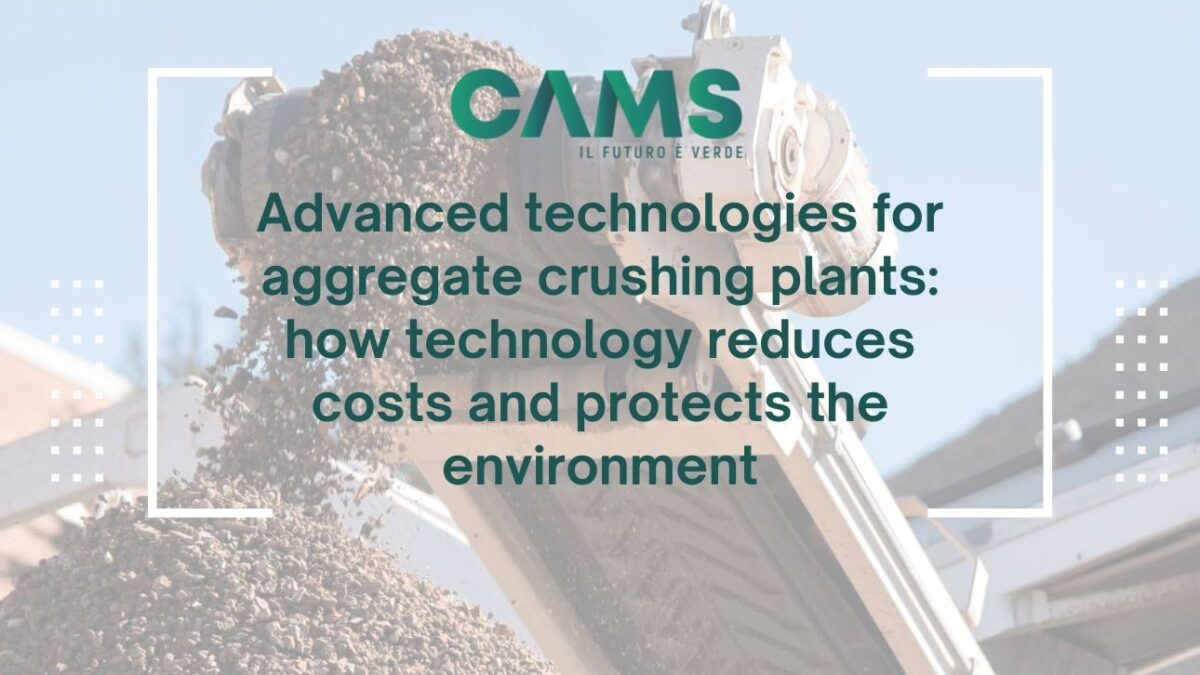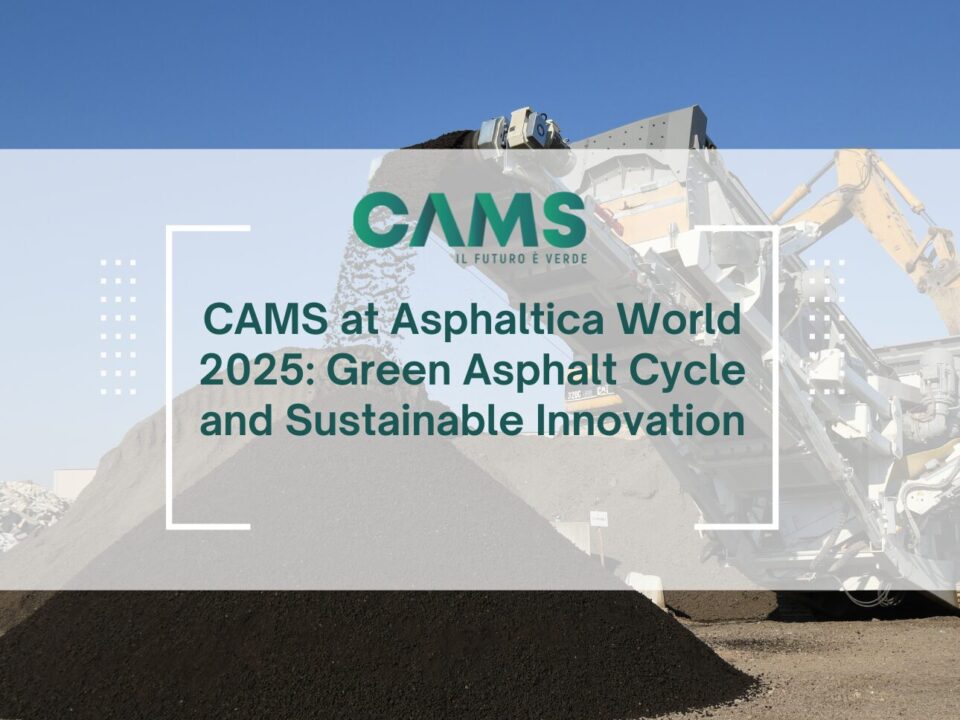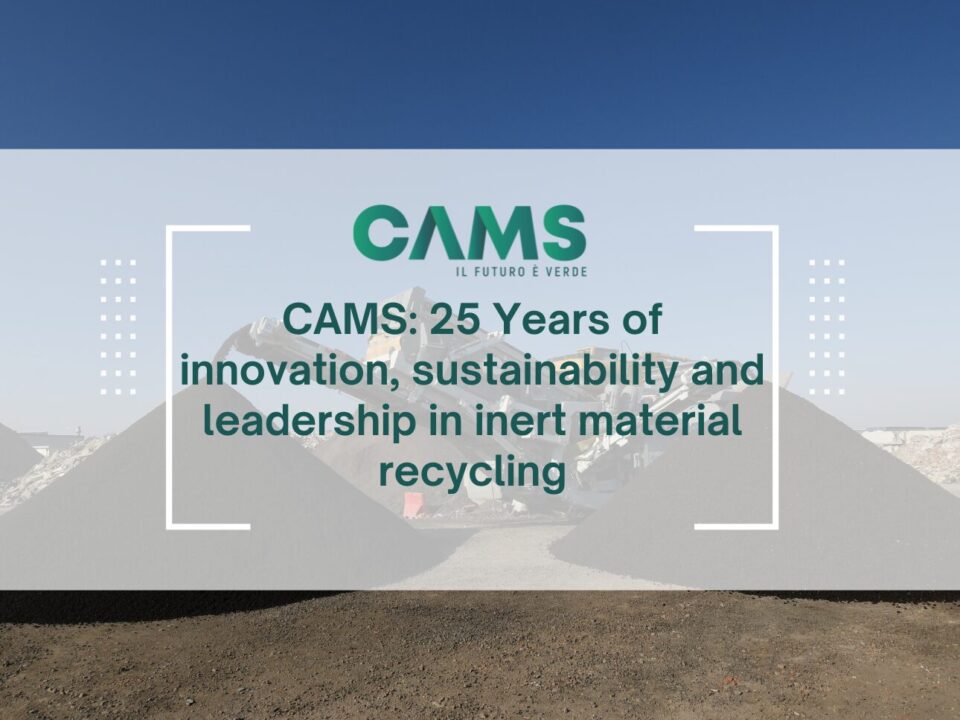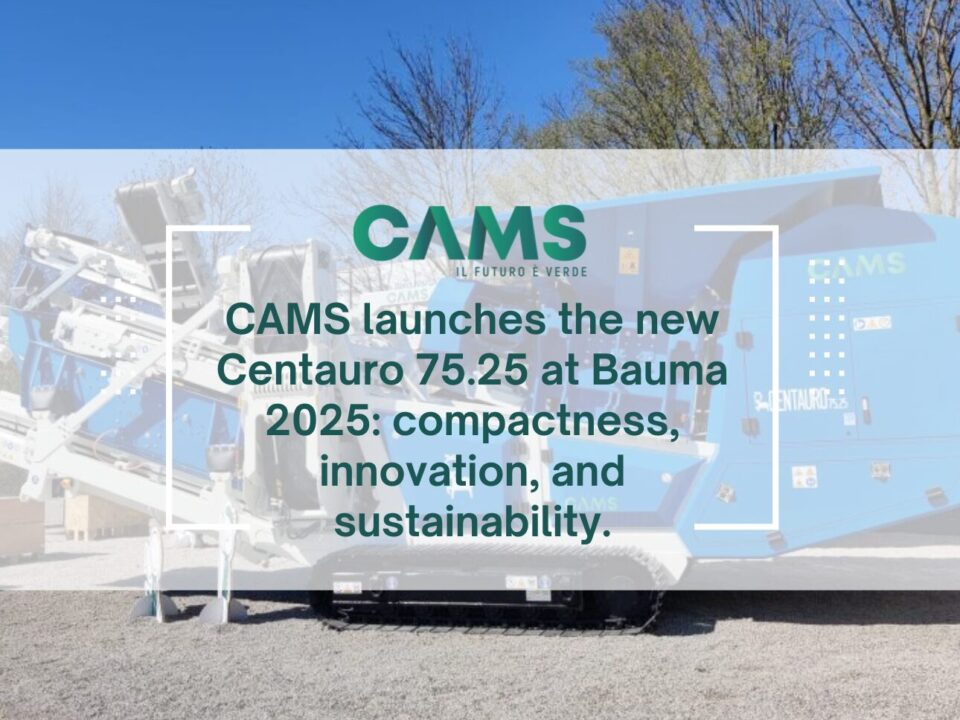The inert-material crushing sector is constantly evolving, also thanks to the introduction of increasingly advanced technologies that make it possible to optimize processes, increase productivity, and reduce environmental impact.
In this article, we will look at the main advanced technologies applied to inert-material crushing plants, highlighting their benefits and potential.
Intelligent control systems
The modern CAMS inert-material crushing plants are equipped with intelligent control technologies that optimize management and help minimize downtime.
- Remote control: the PLC software developed by CAMS engineers enables remote control of the machine, automating the production process. The software allows the recycling process to start automatically, while the operation of the entire plant is constantly monitored.
- Integrated software: thanks to CAMS control software, it is possible to monitor the machine’s operating conditions and manage key parameters, enabling customization of operating modes.
- Predictive maintenance: sensors and artificial-intelligence algorithms analyze the plant’s operating data, predicting potential faults and scheduling preventive maintenance to minimize downtime.
CAMS UTM/UTS crushing plants: the advantages
Mobile and skid-mounted UTM/UTS plants offer a range of advantages that make them the ideal choice for different applications, particularly for temporary sites or where material is dispersed.
Environmental impact reduction:
- Low dust emissions: integrated dust-suppression systems minimize airborne particulate dispersion, protecting operators’ health and the surrounding environment.
- Low noise emissions: quiet crushing technology keeps noise to a minimum during processing, ensuring a more comfortable working environment and complying with environmental noise regulations.
- No ground vibrations: the plants’ skid-mounted architecture eliminates vibrations transmitted to the ground, avoiding damage to nearby structures and ensuring greater stability during operation.
Versatility and adaptability:
- Ability to process wet or damp materials: UTM/UTS plants are designed to efficiently process materials with high moisture content without compromising final product quality.
- Ability to process materials with a high filler content: selective crushing technology allows the treatment of materials with a high filler content, such as limestone and gypsum, delivering a uniform, controlled particle size.
- Ability to process clayey materials: UTM/UTS plants can crush clayey materials that are difficult to handle with traditional plants.
- Ability to process bituminous conglomerates: cold-crushing technology processes bituminous conglomerates without overheating them, preserving their properties and facilitating reuse.
- Ability to process reinforced concrete, with iron separation after crushing: UTM/UTS plants integrate magnetic separation systems that recover iron from crushed reinforced concrete, adding value to this waste material.
Efficiency and profitability:
- Lower power absorbed per cubic meter of processed material: UTM/UTS plants consume less energy than traditional plants, ensuring high energy efficiency and reducing operating costs.
- No operator required at the crusher inlet: automatic feeding technology eliminates the need for an operator at the crusher mouth, increasing safety and process efficiency.
- Low wear: UTM/UTS components are made from highly wear-resistant materials, ensuring long service life and minimizing maintenance costs.
- Low maintenance: the plants’ simple design and modularity make maintenance operations easier, reducing downtime and increasing productivity.
CAMS UTM/UTS crushing plants stand out for their versatility, efficiency, profitability, and low environmental impact, making them the ideal solution for temporary job sites, locations with dispersed material, and applications that require flexible, high-quality processing.
Contact us for more information.
Cams “IL FUTURO È VERDE”





